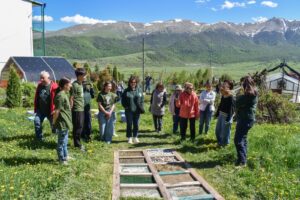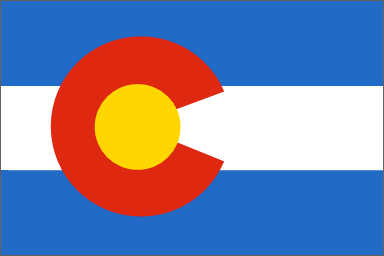DENVER, Colo. — Colorado’s State Senate unanimously voted on April 24 to designate the day as “Colorado Day of the Remembrance of the Armenian Genocide” through a strongly-worded resolution that also recognized the Republic of Artsakh and the recent cultural genocide in Nakhichevan.
“We are grateful for Colorado’s ongoing remembrance of the Armenian Genocide and we are so proud of this year’s courageous resolution that recognizes the ongoing genocidal repercussions faced by the Armenian homeland,” remarked the Armenian National Committee of America Western Region (ANCA WR) chair Nora Hovsepian, Esq. “The resolution is particularly commendable for referencing and effectively recognizing the Republic of Artsakh,” continued Hovsepian. “This success, which builds upon the Sardarapat Highway and the Capitol Khachkar Memorial, is another testament to the effectiveness of the determined and persistent activism pursued by Colorado’s vibrant Armenian American grassroots.”
Championed by Democratic Sen. Dominick Moreno and Republican Sen. Jack Tate, Senate Resolution 19-012 recounts the historical background of the Armenian Genocide, recalls Colorado’s WWI-era efforts in support of the Armenian Nation, and references the ongoing consequences of the Armenian Genocide that impact the Armenian homeland on a daily basis. In particular, the resolution states that “The ongoing consequences of the Armenian Genocide and its impunity include the Turkish-Azerbaijani blockade of the already-landlocked sister states of the Armenian homeland, the Republic of Armenia and the Republic of Artsakh.” This recognition increases the number of American states that have recognized Artsakh to nine.
SR 19-012 also cites the recently-exposed cultural genocide in Nakhichevan as an outcome of the impunity for the Armenian Genocide: “Turkey’s unpunished denial of the Armenian Genocide and ongoing desecration of Armenian sacred sites without accountability has inspired and enabled the recent execution of an unparalleled cultural genocide of the entire indigenous Christian Armenian heritage in the Azerbaijani exclave of Nakhichevan, where between the years of 1997 and 2006 the Azerbaijan Government eradicated every trace of the region’s ancient Armenian past of an estimated 90 churches and 6,000 intricately-carved cross-stones, including the celebrated Julfa khachkars, one of which was replicated in 2015 for the Colorado State Capitol Armenian Genocide Memorial Garden.”
First introduced in 2002, Colorado’s annual Armenian Genocide resolution, as it has done previously, concludes by expressing support for “constructive and durable relations between the country of Armenia, the homeland for the Armenian people, and its neighbors, based upon acknowledgment of the facts and ongoing consequences of the Armenian genocide, and a fair, just, and comprehensive international resolution of this unpunished crime against humanity.”
SR 19-012 was voted on in the morning of April 24 in the presence of ANCA activists and Armenian American community leaders. The introduction and vote was broadcast live on ANCA-WR’s Facebook page and aired on The Colorado Channel. Due to time consideration, only parts of the resolution were read on the floor.








